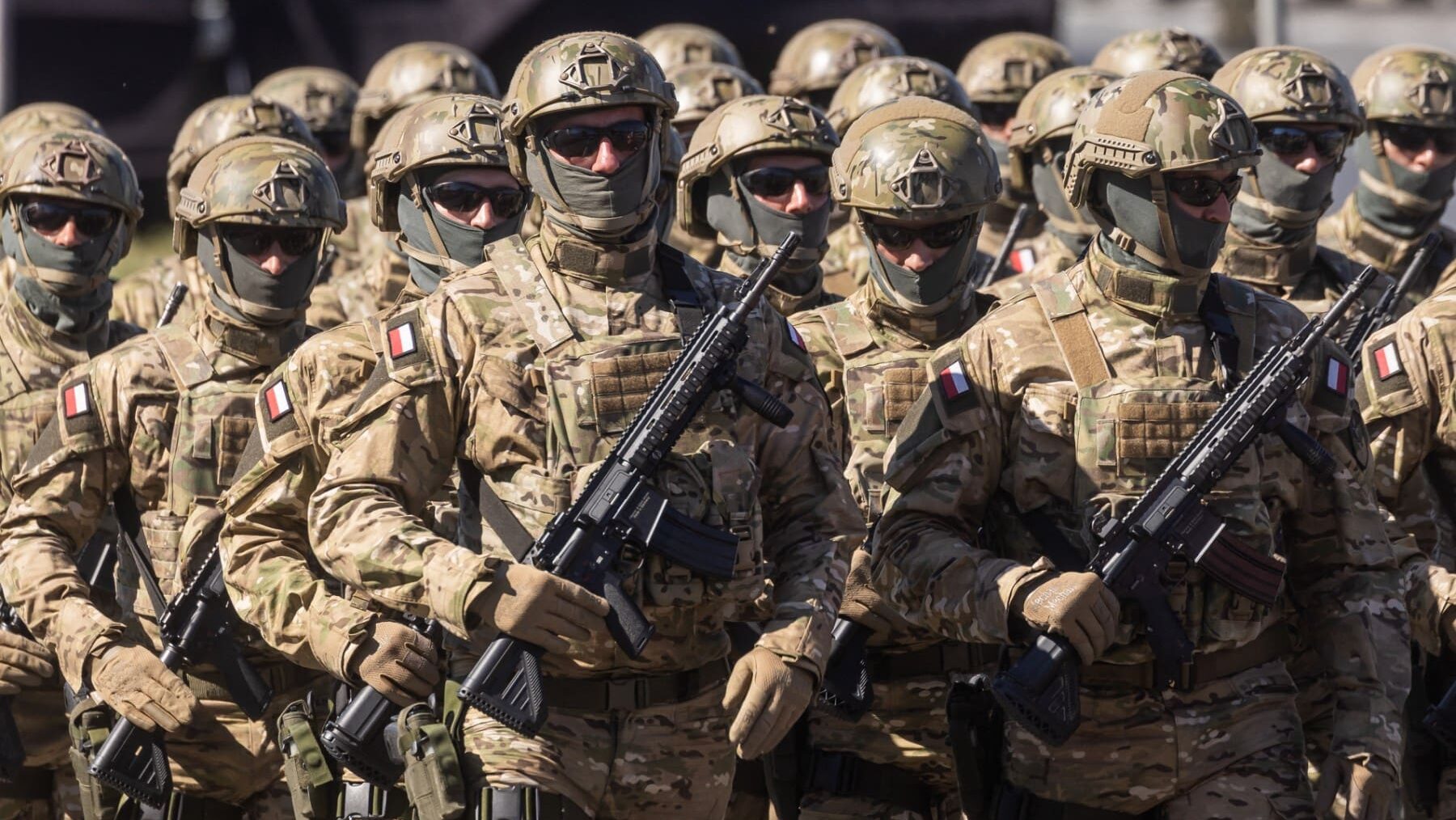
Polish soldiers take part in a military parade in Warsaw on Polish Army Day, August 15, 2023, to commemorate the anniversary of the 1920 victory over Soviet Russia at the Battle of Warsaw during the Polish–Soviet War.
Photo: Wojtek RADWANSKI / AFP
Poland should prepare its soldiers for an all-out conflict, its armed forces chief of staff has said. General Wiesław Kukuła told a press conference on Wednesday, July 10th: “Today, we need to prepare our forces for full-scale conflict, not an asymmetric-type conflict.”
Tensions have been rising along the borders of Poland and Belarus for the past few years, with security, migration and trade disputes all playing a role.
Starting in 2021, Belarus has weaponised migration by flying thousands of migrants into the country and helping them cross the EU’s borders, in a form of hybrid warfare. Poland, Latvia, and Lithuania have all erected fences at their borders with Belarus to prevent migrant crossings. Belarusian President Alexander Lukashenko said last week that the fences are there to “choke” his country and force it to care for the migrants alone, but that he would keep sending them nonetheless.
This intensifying ‘hybrid warfare’ is one of the reasons Poland is investing €2.4 billion into a massive defence infrastructure that is planned to run along the country’s eastern border, complete with bunkers and landmines to also repel a possible invasion from Russia.
Poland lies in a strategically and militarily sensitive area: it borders Kaliningrad, a heavily militarised Russian exclave to the north, Russia’s ally Belarus to the east, and Ukraine, which has been fighting a war with invading Russian forces for more than two years, also to the east.
Russia used Belarus as one of its launchpads to attack Ukraine two years ago, and Belarus and China started a joint military exercise just a few kilometres away from the border of Poland—demonstrating why Warsaw feels constantly threatened.
Poland, a NATO and EU member, has been one of the staunchest supporters of Ukraine since the war broke out, and has called for a strong NATO presence in eastern Europe to deter Russia from trying to invade other countries. Echoing French President Emmanuel Macron, Foreign Minister Radosław Sikorski believes Poland shouldn’t rule out the possibility of sending its troops to Ukraine. Polish President Andrzej Duda has said his country is ready to host American nuclear weapons on its territory. Ukrainian President Volodymyr Zelensky and Polish Prime Minister Donald Tusk signed a bilateral security agreement on Monday, after which Tusk said: “Russia’s attack on Ukraine is also an attack on Ukraine’s friends and neighbours. … If this war ended badly, it would also end badly for Poland and the entire Western world.”
Warsaw has ramped up defence spending to more than 4% of its economic output this year, making it the top spender among NATO members for the second year running. Poland plans to increase the size of the armed forces from about 190,000 to 300,000 troops within a few years. Deputy defence minister Paweł Bejda said on Wednesday that the number of troops guarding the eastern border would be increased to 8,000 from the current 6,000.
Tensions between Poland and Belarus have manifested in trade relations as well. Four of six border crossings are now closed and Radosław Sikorski has said that Warsaw does not rule out a complete closure. The movement of trucks at the border slowed down significantly this week as Poland introduced checks related to new sanctions. The EU agreed on a sanctions package against Belarus in June to crack down on goods being sent into EU territory by Russia via Belarus to evade sanctions imposed over the Russian invasion of Ukraine.
